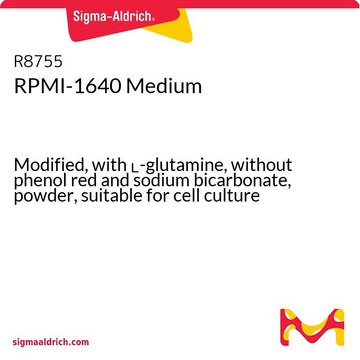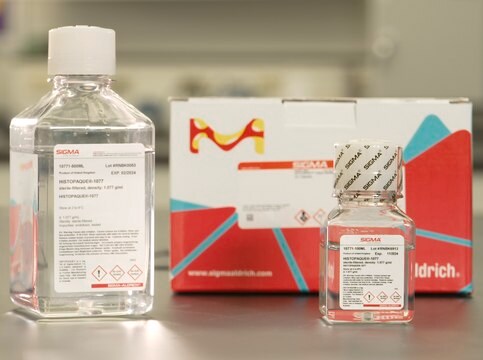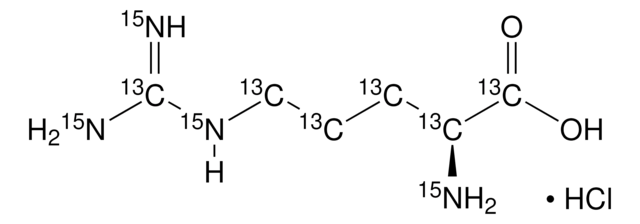R1780
RPMI-1640 Medium
With ʟ-glutamine, sodium bicarbonate without arginine, leucine, lysine, and phenol red, liquid, sterile-filtered, suitable for cell culture, suitable for isotope labeling for cell culture applications
Synonym(s):
RPMI 1640 Cell Culture Medium, Roswell Park Memorial Institute 1640 medium
About This Item
Recommended Products
Product Name
RPMI-1640 Medium, With L-glutamine and sodium bicarbonate. Without arginine, leucine, lysine, and phenol red, liquid, sterile-filtered, suitable for cell culture, designed for isotope labeling for cell culture applications
Quality Level
sterility
sterile-filtered
form
liquid
technique(s)
cell culture | mammalian: suitable
impurities
endotoxin, tested
components
NaHCO3: 2 g/L
phenol red: no
glucose: 2 g/L (Dextro)
L-glutamine: 0.3 g/L
shipped in
ambient
storage temp.
2-8°C
Looking for similar products? Visit Product Comparison Guide
General description
Reconstitution
Supplement with 0.100 g/L L-Arginine-13C6, 15N4 HCl (Product 608033), 0.100 g/L L-Leucine-13C6, 15N (Product 608068), and 0.100 g/L L-Lysine-13C6, 15N2 (Product 608041).
also commonly purchased with this product
Storage Class Code
12 - Non Combustible Liquids
WGK
WGK 1
Flash Point(F)
Not applicable
Flash Point(C)
Not applicable
Choose from one of the most recent versions:
Already Own This Product?
Find documentation for the products that you have recently purchased in the Document Library.
Customers Also Viewed
Our team of scientists has experience in all areas of research including Life Science, Material Science, Chemical Synthesis, Chromatography, Analytical and many others.
Contact Technical Service






